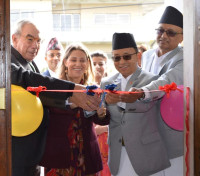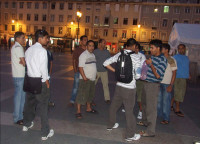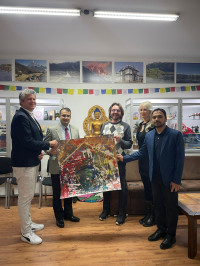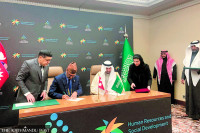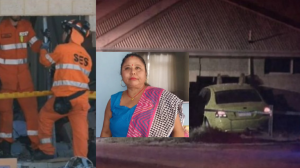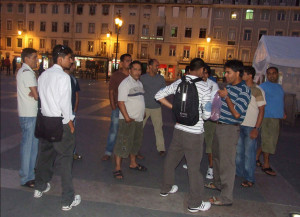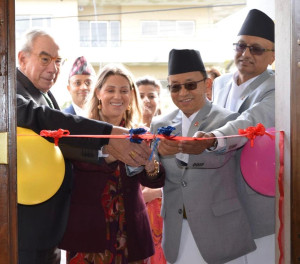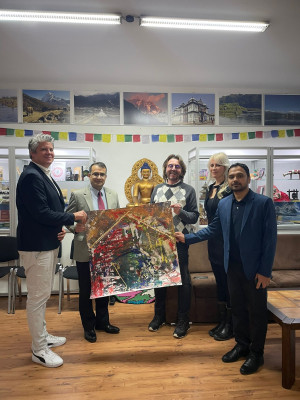Nepali Diaspora
NRNA unity convention held as per top court and foreign ministry’s directives, says minister
Supreme Court had last year nullified all existing committees and authorised the Shesh Ghale-led committee to organise unification convention.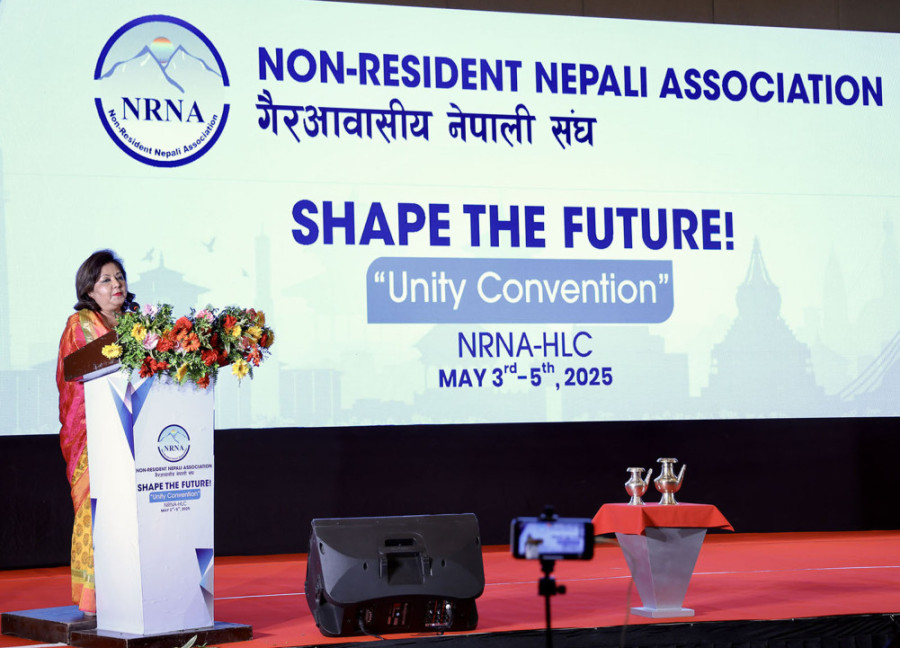
Post Report
Foreign Minister Arzu Rana Deuba on Friday stated that the ongoing unity general convention of the Non-Resident Nepali Association (NRNA) was conducted in accordance with the decisions of both the Supreme Court and the Ministry of Foreign Affairs.
Speaking at the inauguration of the convention organised by the high-level committee led by former NRNA president Shesh Ghale, Deuba stressed that her ministry only recognises one official NRNA leadership.
“We recognise only one NRNA,” said Deuba. “This is the official one. Everyone must join this and work in unity—there is no space for division.”
The unity convention follows a prolonged internal conflict within the global diaspora body, primarily fuelled by political affiliations and disputed election outcomes. A verdict by the Supreme Court on April 3 last year nullified all existing committees and authorised Ghale’s high-level committee to organise a unification convention. The Ministry of Foreign Affairs formally endorsed this decision in October, mandating Ghale to carry the process forward.
Deuba also urged NRNA members to refrain from injecting domestic politics into the organisation. “Politics may be necessary in your political parties, but it should not disrupt an institution like the NRNA,” she said.
Echoing similar sentiments, former prime minister Baburam Bhattarai blamed the narrow minded approach based on partisan interests for the rift within the association. “It’s natural to have political affiliations while in Nepal, members from an organisation like the NRNA should not be divided along such partisan lines,” he said during the same event. “The conflict need not have gone to the courts, but now that it has, let’s uphold the court’s spirit of unity.”
He further argued that since Nepal needs huge investment, knowledge, and skills more than ever, the government should grant non-resident Nepalis economic, social, and cultural rights as outlined in the constitution, including a form of citizenship. “Policies must align with constitutional values—there should be no obstacles to providing NRNA with rightful recognition,” Bhattarai added.
The NRNA has long struggled with internal divisions. After disputed leadership elections and parallel operations by rival factions, the court had initially suspended all activities and instructed for a fresh mandate through consensus.
Though the association has historically maintained a neutral and developmental role in Nepal’s diaspora affairs, recent years have seen growing politicisation within it.




 22.69°C Kathmandu
22.69°C Kathmandu